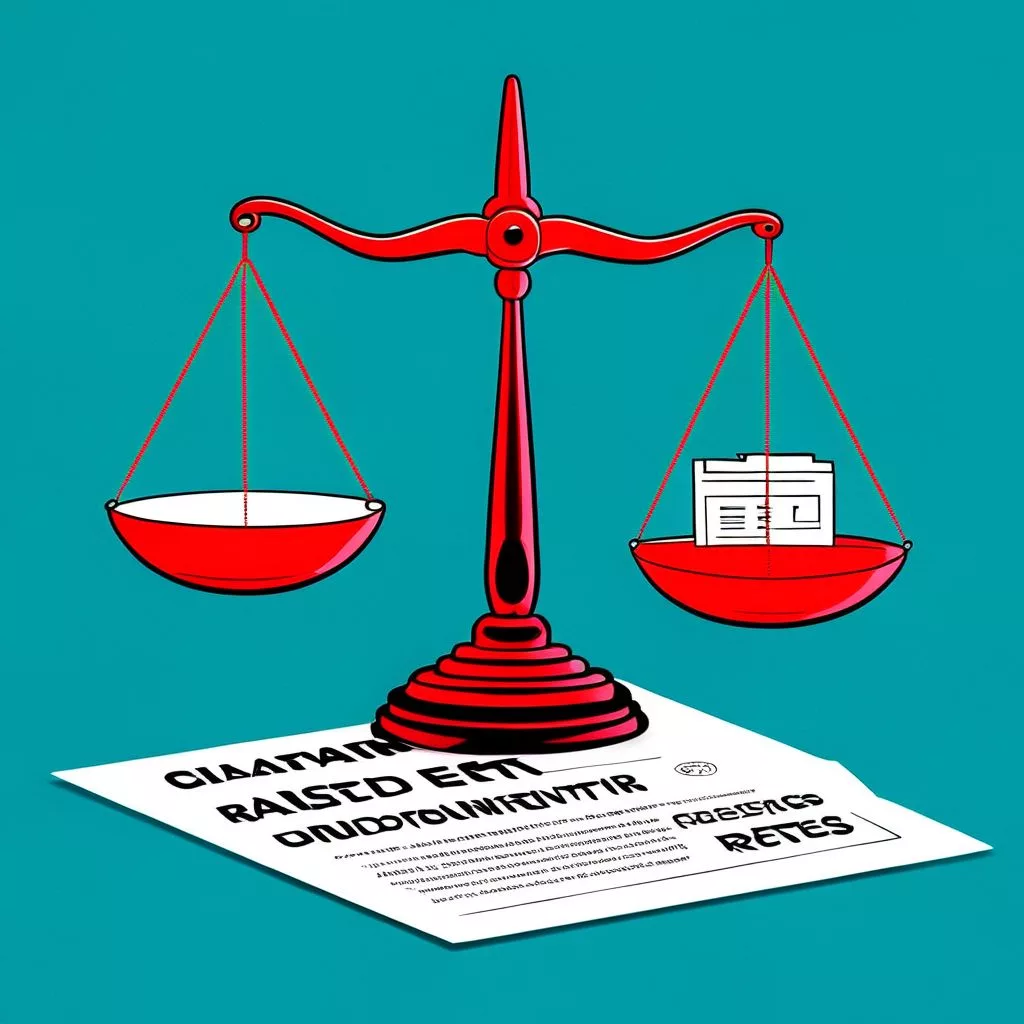In a big win for consumers, the National Consumer Commission ruled that FlySafair’s ticket overbooking practices were illegal. This decision highlights the importance of consumer rights and ensures that passengers get what they pay for when flying. The investigation started after many unhappy customers came forward, and the ruling sets a strong example for all airlines to follow fair practices. It’s a crucial step towards making sure businesses treat their customers honestly, paving the way for a better shopping experience for everyone.
What was the outcome of the National Consumer Commission vs. FlySafair case?
The National Consumer Commission ruled that FlySafair’s overbooking and ticket overselling practices violated the Consumer Protection Act. This landmark decision emphasizes consumer rights and sets a precedent for accountability in the airline industry, ensuring passengers receive the services they pay for.
The consumer rights landscape in South Africa has been dramatically altered by a decisive ruling from the National Consumer Commission (NCC). FlySafair’s practices of overbooking and overselling tickets have been deemed in violation of the Consumer Protection Act (CPA), drawing significant attention to the often murky practices within the country’s airline industry. This landmark decision comes on the heels of increasing consumer complaints and revealing parliamentary disclosures.
Parliamentary Session: Declaring Illegality
On April 2, 2025, during a parliamentary session, Acting Commissioner Hardin Ratshisusu made a bold declaration about FlySafair’s actions. Ratshisusu stated that the airline’s practices blatantly infringe on sections 19(2) and 47(2) of the CPA, which affirms the right of consumers to receive the services they have paid for. The Act strictly prohibits overbooking except under uncontrollable circumstances. Ratshisusu’s assertion places FlySafair in direct opposition to these consumer protections, making it a defining moment in the battle between consumers and service providers.
This assertion follows a growing wave of consumer dissatisfaction. As consumers increasingly demand accountability and transparency from service providers, this ruling represents a significant victory. Ratshisusu’s remarks underscore the importance of adhering to consumer protection laws, highlighting the CPA’s role in safeguarding consumer rights against exploitative practices.
The parliamentary session also underscored the urgency of addressing these grievances. By pinpointing the illegality of FlySafair’s practices, the NCC not only validates the concerns of affected consumers but also sets a powerful precedent for other service providers, emphasizing that consumer rights cannot be compromised.
The Investigation: Uncovering the Facts
The NCC’s investigation began on January 8, 2025, spurred by a rising number of complaints from disgruntled passengers. These consumers felt deeply wronged by FlySafair’s overbooking policies, prompting the commission to take action. A particularly notable incident involved a paying passenger being denied boarding, which intensified scrutiny of the airline’s policies and operations.
This investigation highlights the broader issue of overbooking, a common practice in the airline industry meant to maximize revenue. However, this practice often leaves consumers in difficult situations, unable to access the services they have paid for. The NCC’s investigation aims to address these grievances and ensure that airlines adhere to fair practices.
In a statement to Moneyweb, Ratshisusu emphasized the necessity for businesses to deliver the services and products they advertise. He highlighted that suppliers must not engage in offering non-existent services, reinforcing the CPA’s robust protective framework. This stance illustrates the Act’s strength in shielding consumers from exploitative business practices and ensuring they receive what they have been promised.
Extending the Timeline: Ensuring Thorough Examination
Initially expected to conclude within the first quarter of the 2025/26 financial year, the investigation’s timeline has now extended into the second quarter. This extension allows for a meticulous examination of the substantial data submitted by FlySafair, ensuring a thorough scrutiny of the airline’s operational practices. Such a comprehensive analysis is necessary to determine the extent of the airline’s compliance with consumer protection laws.
This extension signifies the NCC’s commitment to a detailed and fair investigation. By taking the necessary time to thoroughly review all evidence, the commission can ensure that the final ruling is well-founded and just. This careful approach also serves to reinforce the importance of transparency and accountability in business practices.
The FlySafair case, while specific to the airline industry, has broader implications. It sets a precedent for how similar cases should be handled, emphasizing the need for businesses to operate with integrity and transparency. This ruling could prompt other airlines to reassess their policies, ensuring they do not fall foul of consumer protection laws.
Broader Implications: Consumer Protection Beyond Airlines
Interestingly, the FlySafair investigation coincides with another significant consumer protection issue: the recall of cereal products by Heartland Foods. The NCC announced this recall after identifying defects in the products, which failed to deliver the nutritional benefits claimed on their packaging. Involving major retailers like Shoprite, Checkers, Usave, and OK Foods, this case underscores the NCC’s broader role in protecting consumer interests across various sectors.
The Heartland Foods recall draws attention to the importance of accurate product information. Consumers rely on truthful labeling to make informed choices, and any deviation from this trust can have serious consequences. The NCC’s decisive action in this case reinforces the message that false claims and substandard products will not be tolerated, thereby enhancing consumer confidence in the market.
This broader role of the NCC highlights the importance of consumer protection in various industries, not just airlines. By ensuring businesses are held accountable for their practices, the NCC fosters a marketplace where consumers can trust that they are receiving what they are promised. This trust is essential for a healthy, fair, and competitive market.
Historical Context: Echoing Broader Movements
Delving into the historical context, the NCC’s actions reflect a global movement towards stronger consumer protection. The consumer rights movement, which gained momentum in the mid-20th century, has always aimed to balance the scales between consumers and businesses. The FlySafair ruling, while specific to South Africa, resonates with these global efforts to curb corporate overreach and ensure fair treatment of consumers.
Additionally, the ruling invites comparisons with artistic movements that challenged established norms. Just as the Dadaists of the early 20th century used absurdity to critique societal conventions, the NCC’s ruling disrupts the accepted practices of the airline industry. This disruption forces a reevaluation of what is considered acceptable, pushing businesses to align more closely with ethical standards.
The principles of the Arts and Crafts Movement of the late 19th century, which emphasized craftsmanship and quality over mass production, also provide a useful analogy. This movement sought to restore integrity and value in consumer goods, much like the NCC’s ruling aims to uphold the integrity of services offered to consumers. By ensuring consumers receive what they have been promised, the NCC reinforces the importance of honesty and transparency in business practices.
Looking Forward: Impacts and Future Directions
The FlySafair ruling underscores the necessity for transparency in business practices. Just as Impressionist painters captured the fleeting effects of light and color, shedding light on hidden aspects of their subjects, the NCC aims to illuminate the opaque practices within the airline industry. This transparency is crucial for fostering trust between consumers and service providers, laying the foundation for a more equitable marketplace.
Reflecting on the broader societal impacts, the NCC’s ruling against FlySafair marks a significant milestone in the ongoing battle for consumer rights. This decision not only addresses the grievances of affected passengers but also sets a powerful precedent for the airline industry. By holding FlySafair accountable for its overbooking and ticket overselling practices, the NCC reinforces the importance of consumer protection laws and ensures that businesses operate with integrity and transparency.
Moving forward, the ripples of this ruling will likely be felt across the airline industry. Other airlines may be prompted to reevaluate their policies and prioritize consumer rights, ensuring they do not fall into similar legal troubles. This case serves as a stark reminder that consumer protection laws exist to prevent exploitation and ensure a fair marketplace. The NCC’s actions signal a commitment to upholding these laws and protecting consumers from unfair practices.
In conclusion, the NCC’s ruling against FlySafair is a landmark moment for consumer rights in South Africa. By addressing the issues of overbooking and ticket overselling, the NCC has taken a significant step towards ensuring that consumers receive the services they pay for. This decision not only provides redress for affected passengers but also sets a new standard for the airline industry. As businesses take note of this ruling, the hope is that they will adopt more transparent and fair practices, ultimately benefiting consumers and fostering a healthier marketplace.
“`markdown
FAQ: National Consumer Commission vs. FlySafair
What was the outcome of the National Consumer Commission vs. FlySafair case?
The National Consumer Commission ruled that FlySafair’s overbooking and ticket overselling practices violated the Consumer Protection Act. This decision emphasizes consumer rights and sets a precedent for accountability in the airline industry, ensuring passengers receive the services they pay for.
What prompted the investigation into FlySafair’s practices?
The investigation was initiated on January 8, 2025, following a rising number of complaints from dissatisfied passengers regarding FlySafair’s overbooking policies. Many customers reported feeling wronged, particularly in cases where they were denied boarding despite having purchased tickets.
What did the Acting Commissioner state during the parliamentary session?
During a parliamentary session on April 2, 2025, Acting Commissioner Hardin Ratshisusu declared that FlySafair’s overbooking practices blatantly infringe on sections 19(2) and 47(2) of the Consumer Protection Act. He emphasized that consumers have the right to receive the services they have paid for and that overbooking is only permissible under uncontrollable circumstances.
How does the ruling impact consumer protection more broadly?
This landmark ruling not only addresses the specific issues within the airline industry but also reinforces the importance of consumer protection across various sectors. It serves as a powerful reminder that businesses must operate with integrity and transparency, ensuring that consumers receive what they are promised.
What are the implications for other airlines following this ruling?
The ruling against FlySafair sets a strong precedent, prompting other airlines to reevaluate their policies regarding ticket sales and overbooking. It underscores the necessity for airlines to adhere to consumer protection laws to avoid similar legal challenges, ultimately benefiting consumers by ensuring fair practices.
How does this ruling reflect broader movements in consumer rights?
The National Consumer Commission’s actions resonate with global movements aimed at enhancing consumer rights that gained momentum in the mid-20th century. This ruling highlights the ongoing struggle for fair treatment of consumers and serves as a call to action for businesses to prioritize ethical practices and accountability.
“`












